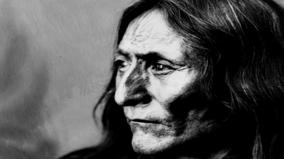Etlinisigu'niet (Vidés de leur sang)
Réalisé dans le cadre de la série « Souvenir », le court métrage Etlinisigu’niet (Vidés de leur sang) de Jeff Barnaby pulvérise ce qui subsistait du mythe d’un Canada juste et équitable. Le message du réalisateur est clair : nous sommes toujours là. Les efforts en vue de « se débarrasser du problème indien » ont échoué.

Details
Réalisé dans le cadre de la série « Souvenir », le court métrage Etlinisigu’niet (Vidés de leur sang) de Jeff Barnaby pulvérise ce qui subsistait du mythe d’un Canada juste et équitable. Le message du réalisateur est clair : nous sommes toujours là. Les efforts en vue de « se débarrasser du problème indien » ont échoué.
-
directionJeff Barnaby
-
producerAnita Lee
-
executive producerAnita Lee
-
editorJeff Barnaby
-
delegate producerKate Vollum
-
NoneTanya TagaqJesse ZubotJean MartinMark WilsonSerena LeeAntonia GueorguievaJean CoulombePascal VincentAldo La RiccaWilliam Holley
-
song - publisherThird Side Music Inc.Jesse ZubotJean Martin
-
technical leadMarcus Matyas
-
editing assistantTiffany BeaudinZoya Rezaie
-
studio administratorStefanie Brantner
-
production coordinatorJennifer BertlingAndrew Martin-Smith
-
marketingMelissa Wheeler
-
publicityJennifer Mair
-
title designSébastien Aubin
-
titles designSébastien Aubin
-
online editingLaura Aqui
-
post-production servicesFearless Films
-
stock footageFred SavardRagnhild MilewskiJosée Riopel
Education
Ages 12 to 18
Indigenous Studies - History/Politics
Indigenous Studies - Identity/Society
Indigenous Studies - Issues and Contemporary Challenges
A short film that can be used as a starting point for conversations that deepen an understanding of the long-term effects of the disregard for Indigenous lives and land. Research the common narrative of industry poisoning land and water that directly affects Indigenous livelihood. Research the legacy of nutritional experiments in residential schools. Research “Indian hospitals,” which segregated “Indians” during times of tuberculosis. Discuss and find examples of continued hatred and inequality that permeate the Canadian healthcare system when it comes to the treatment of Indigenous Peoples.

















